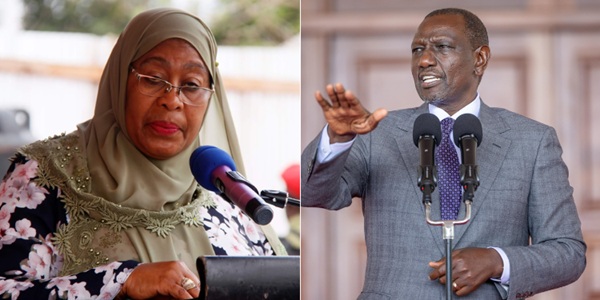Tanzania has barred foreign nationals from owning and operating mainly small-scale businesses, sparking concern and a backlash from neighbouring Kenya.
Mobile money transfers, tour guiding, small-scale mining, on-farm crop buying, beauty salons, curio shops and establishing radio and TV operations are some of 15 businesses on the ban list.
Trade Minister Selemani Jafo explained that foreigners had increasingly become involved in the informal sector and areas better filled by Tanzanians.
While locals have generally welcomed the new directive, there has been growing concerns among foreigners, including Chinese nationals whose presence is now perceived as encroaching on smaller trades.
Last year, traders at Dar es Salaam’s bustling Kariakoo shopping district protested aggressive taxation and unfair competition from Chinese traders.
Violators risk fines, six months in jail and loss of visas and work permits.
The move has been met with anger in Kenya, with some arguing that it violates East African Community (EAC) agreements that guarantee free movement of people and trade among its eight member states.
Kenyan Trade Minister Lee Kinyanjui called for the ban to be removed, saying it would “hurt” both Kenya’s and Tanzania’s economies.
“It is therefore critical, in the spirit of EAC, that bilateral engagements be held to resolve these issues,” Kinyanjui wrote in a statement on Wednesday.
National Assembly Trade Committee chairman Bernard Shinali warned the move could trigger reciprocal restrictions. “There are many Tanzanians working in our mining sites too, It is clear that Tanzanians have gone too far and we should cut links with them.”
Tanzania and Kenya have experienced periodic political and economic tensions.
Tanzania’s implementation of protective tariffs and import bans has in the past drawn criticism from its regional partners.
In May, Kenya’s Foreign Affairs Minister Musalia Mudavadi said that about 250,000 Kenyans lived, worked or did business in Tanzania, something he noted as he emphasised the need to preserve cordial relations.
He was addressing diplomatic tensions surrounding Tanzania’s treatment of Kenyans who had gone to Dar es Salaam to observe the treason trial of opposition leader Tundu Lissu.
Several of them were deported while prominent Kenyan activist Boniface Mwangi, along with Ugandan activist Agather Atuhaire, went missing and were later reported to have been tortured and sexually mistreated.
Tanzania is due to hold general elections in October, with the ruling CCM party expected to retain power.

